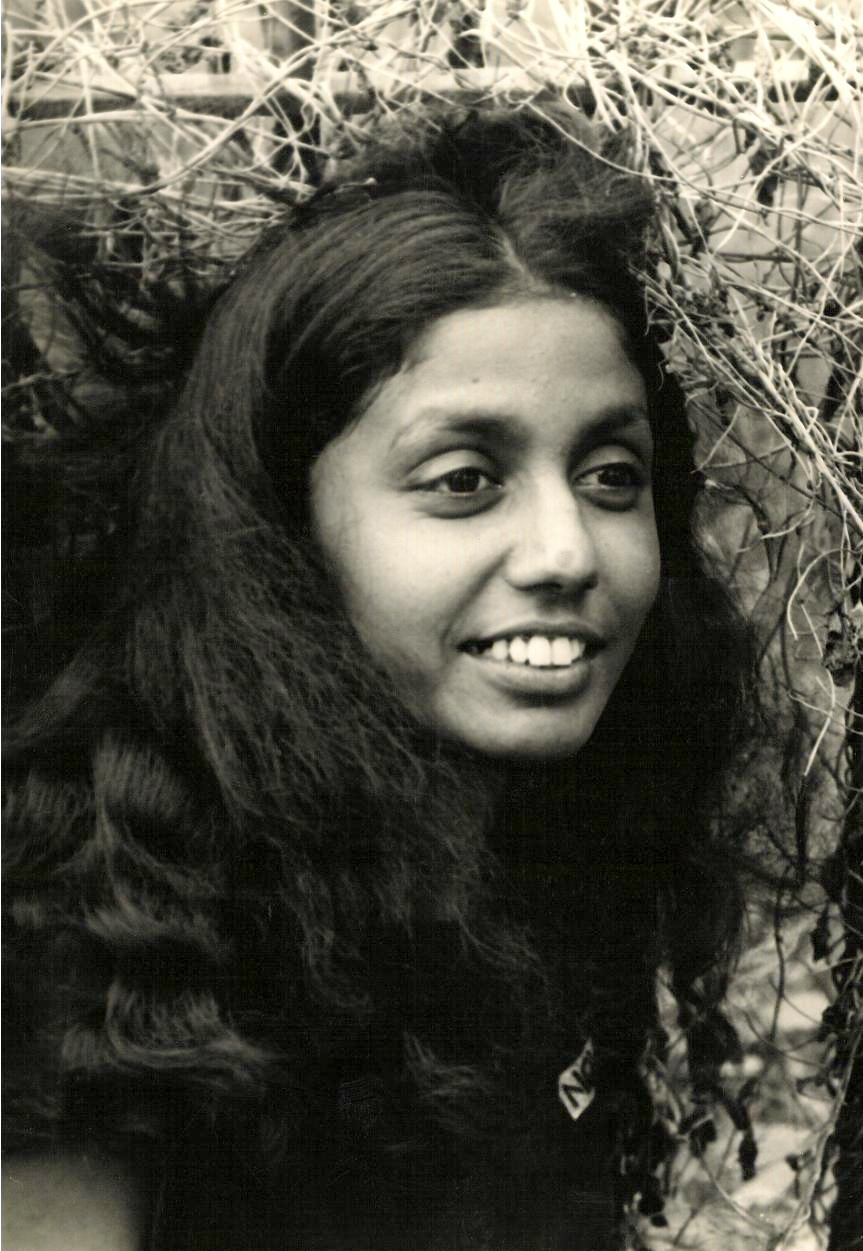I first heard about Rajani when I was 19 years old. A teaching assistant in my philosophy class handed me a book chronicling human rights abuses in Sri Lanka. At the time, I didn’t know anything about Sri Lanka. I could barely find the teardrop-shaped island on a map, let alone understand the complex tragedy unfolding across the country. The book was dedicated to a particular woman who stood up for humanity in the face of unspeakable violence, her life cut short one evening as she bicycled home from university. The story of Rajani would eventually take me to Sri Lanka to live underground with her surviving colleagues.
Rajani Thiranagama was a social justice activist, medical doctor, feminist and scholar. As a Tamil woman living in the north of Sri Lanka, she married a Sinhalese revolutionary from the south. Despite the extreme danger of speaking out, Rajani chose to remain in the epicentre of the war’s brutality. Together with her colleagues at the University of Jaffna, she exposed atrocities committed by all sides in the war, including the Sri Lankan government, the Liberation Tigers of Tamil Eelam (LTTE) and the Indian army.
When the Indian army attempted to close the university, Rajani stood between the soldiers and her students, armed with nothing more than a steadfast determination that military men were not welcome in a seat of higher learning. When Tamil women were raped by Sri Lankan soldiers, Rajani opened a home for the women, offering an alternative to being recruited into the ranks of suicide bombers. Against all odds, Rajani believed that life was precious and that no one should die for politics. This went against the grain of general attitudes even within her own community, a people caught between state racism and militant fascism. Sadly, those who took Rajani’s life would ultimately come from within that very community.
At the age of 35, with two young daughters, Rajani was assassinated in 1989. Rajani’s death was an immense shock for the Tamil community in Sri Lanka. It symbolized the sheer ruthlessness of a conflict which would eventually claim the lives of hundreds of thousands of people by its tragic end. Following her murder, Rajani’s friends and family went underground. They continued to painstakingly write about the violence and oppression, carefully telling the story behind each incident, from the disappearance of a lone schoolboy to the massacre of an entire village.
The palmyra tree is distinct to northern Sri Lanka. Similar to a coconut tree, its long trunk is rubbery yet strong, appearing impossible to break. The title of the book my teaching assistant gave me that day many years ago was The Broken Palmyra. Following Rajani’s death, he himself had fled to Canada and taken up a post at McMaster University. Like most activists I have since met from Sri Lanka, he had been imprisoned and tortured at a young age. Like Rajani, he was determined to challenge oppression in whichever guise it took, whether it came from within his community, from the state or from the West.
When I lived in Sri Lanka, I meticulously kept a diary — the only time I have ever done so. Amongst these pages, I always referred to Rajani’s colleagues as “friends.” Should my diary ever be confiscated at a military checkpoint, it was important not to reveal who I was working with. In reality, these individuals were more than friends — they were my mentors, they had become my family.
My friends lived in absolute secrecy, often under the same roof, sometimes changing venues at a moment’s notice. With a vast network of contacts stretching across the country, from the smallest village to the most isolated war zone, they worked tirelessly to honour Rajani’s memory by continuing to report the truth to the outside world. If not for their courage and sacrifice, it would have been impossible for news agencies and non-governmental organizations to tell the world what was happening in Sri Lanka.

Activists in Jaffna at the Thiranagama home in December 2013 [Rajani’s father is in green].
This month, communities in northern Sri Lanka will hold numerous vigils, commemoration events and marches to mark the 25th anniversary of Rajani’s passing. Pressing forward with the movement she began during the 1980s is as crucial as ever. The government in Colombo, which has largely become a military state, continues to consolidate power, eliminate opponents and further marginalize both the Tamil and Muslim communities.
For the most part, the international community is once again ignoring all the warning signs, preferring engagement based exclusively on tourism and economic development. And once again, young women and men are risking their lives to urgently build a just and peaceful civil society in Sri Lanka. In memory of Rajani, I sincerely hope that we support their efforts, that they do not walk this journey alone, and that we prevent another woman’s life from being taken by the shadow of the gun.
Kevin Shimmin is a union organizer and peace activist living in Toronto.
Photos courtesy of Kevin Shimmin.



